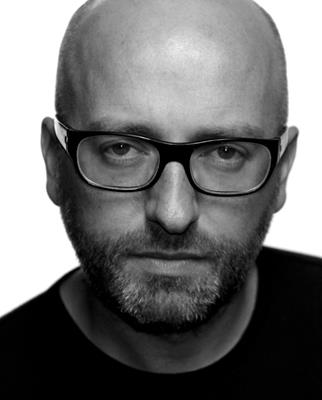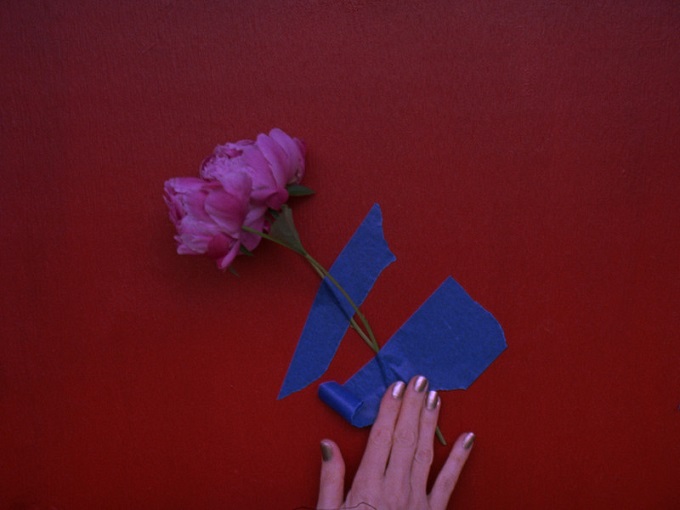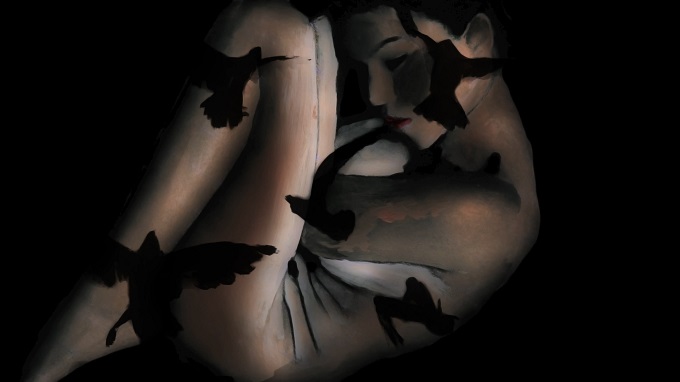 Loading... Please wait...
Loading... Please wait...訂閱 CULTURE-ON
- Home
- Music + Movie 音樂 + 電影
- Interview 專訪
- 極緻低調 香港藝術館電影節
極緻低調 香港藝術館電影節
文: Edgi |2018.7.10
圖: 互聯網 / HKAFF
(Scroll down for English Version)

|
六月中旬的一個晚上,喧鬧的世界杯活動到處都進行得火熱,卻有一個電影節在香港藝術中心裡低調進行,而且,僅此一場。
這個名為Hong Kong Arthouse Film Festival (香港藝術館電影節) 的活動,沒有開幕電影,沒有星光熠熠,也自然沒有娛樂記者。場內只有參與電影節的製片人,與及一眾受邀請的評審及嘉賓。連帶工作人員,放映院裡的人數,大概不多於三十人。 像其他產業一樣,普及大眾抑或精準針對小眾,電影節各有取向。像香港國際電影節,近年便大力宣傳,找來粒粒巨星撐場,各個名字的贊助商出現在海報上,又在社交媒體不斷洗版,跟一般商業活動不無兩樣。
|

|
來自比利時的Kris De Meester,是香港藝術館電影節的創辨人。從拍攝紀錄片到作為監製,Kris完整的電影經歷令他作為電影節搞手更見全面 。作為一個零宣傳的電影節,選片不但集結世界各地優質短片,更特意找來David Lynch的早期作品作焦點部分。如此出色的選片,電影節何以不作任何宣傳呢 ? Kris 本人跟電影節一樣,行事低調 。他當日未有現身電影節會場,還以為沒有機會問過究竟。幸好,隨後有機會跟他在網上談一下電影節的過去與未來,第一個問題當然是,電影節低調的原因。 C: Hello Kris! 電影節從網上電影節開始,已經來到第個四年頭,一直都是如此低調的嗎?看到電影節簡介說到這個電影節的重點是「電影」,這個說法的確對現時的電影節宣傳手法當頭棒喝 。當時是甚麼啟發你去創辦這個電影節?
K: 低調已成我們的名字吧。認真的。我們的目標是同時為電影人與觀眾創造出親密的觀映經驗。在所有電影節當中,真正的明星就是電影。而不應該是無數巨星在紅地毯上擺甫士、給影評作豪華款待的派對以轉移視線、以不相宜的參加費給電影人寄出一堆收據,而嚴重侷限了電影人可以擁有具欣賞能力的觀眾的機會。
我本身在一間於全球各地都有舉辦電影節的公司工作,因此我們有機會在不同地方選取具備才華的電影人,帶到去給國際層面。除了倫敦、波士頓、多倫多、威尼斯、悉尼及布魯塞爾,香港無疑是亞洲區的焦點。香港急速的成為藝術世界中的震央,來自她本身的地理優勢與及向亞洲展示及發行作品的能力。而香港藝術中心可謂是搖籃,歷史悠久,並能將藝術文化融入社區,一直孕育不少人才,因此他們絕對是理想的合作伙伴。以上種種都是對全新一代的電影人極為吸引。
而以低調姿態舉辦電影節的另一好處,我們可以私人形式籌募經費,保持獨立免受外來環境影響。
|
|
C: 不過作為影院裡的觀眾,電影節中有很多出色作品,如此低調未免有點可惜。有沒有想到將來會安排公開播放?或者延長電影節的進行時間?
K: 絕對會。我們的目標是,每次電影節都能得到相關性與重要性。我們會於2019年開放予觀眾欣賞,免費入場,與及放映至少三晚。我相當期待下一屆。 C: 作為一個獨立電影節,電影節有沒有長遠的發展目標和願景?
K: 我們的使命是把獨特的影片帶給有鑒賞能力的觀眾。電影可以是純粹娛樂,同時也可以是藝術形式。有時候,兩者皆是。在這個核心上,藝術是慶祝我們每個人所擁有的獨特聲音與訊息。時而喧鬧,時而靜寂,時而大膽零碎,甚至害羞,這些獨特聲音應該向其他人表達出來,因此,要幫助他們更好的看見自己。在這種視野之下,電影可以作為這種媒介,去啟發及挑戰這種聲音,加上為電影人給予支持 -這就是這個電影節的使命。
|

|
C: 是甚麼驅使今年的電影節移師到影院播放?在你看來,這會與之前在網上播放有甚麼不同?
K: 作網上放映主要是開始時想研究人們對電影節的興趣與想法。到底有幾多電影人有興趣成為電影節中的焦點呢 ? 到底有沒有觀眾去看這些片呢? 經過8次的網上放映經驗,我們覺得是時候可以行前一步。我們目標是可以以本地及國際作品作多次免費公開放映。最後這就是這個電影節的目的。 C: 那麼令你最印象深刻的是那一部片?而選入圍片方面,有沒有甚麼準則? 雖說全都是獨立電影,但很多片子的製作水平以至合作伙伴,都不亞於大片。這方面對我而言相當大驚喜。
K: 我喜歡的是《擁抱》(A Doll s Hug)。 由概念到手法都相當簡單,但也因此拍得非常的美麗。不但在我們的電影節贏得今年最佳敍事電影,這套電影早前被選為 Slamdance 電影節中最佳電影之一。一套好的電影,在我看來,不是去嘗試去做不屬於它的事,而應該是去擁抱它的限制及探索這個可能性的新宇宙。
|
A Doll's Hug Trailer v5 Boy Beach/擁抱 男孩海灘 from Rob C Lo on Vimeo.
|
C: 找來大衛連治早期作品一同播放,有何用意 ?
K: 以一個已建立自己事業的電影人的早期作品作為引子,是想啟發新一代年青電影人,與及希望。大衛連治,像其他偉大的導演一樣,他的事業就如他們所做的。個人上,我是他作品的大影迷。事實上主要原因是,沒有其他導演像他如此,能讓我忘記我正在觀看一部電影。這是一種類似困感與征服 (Confuse and Conquer) 的手法。 (編按:在資訊年代以紛亂訊息甚至假新聞,迷惑大眾,作為創造不確定、不信任的氛圍,被稱為Confuse and Conquer) C: 你現在正進行甚麼工作?最近有沒有參與任何的電影拍攝?
K: 不用多說,我固然不會選擇我有份參與的電影作為電影節一部分。當然這個是很大誘惑的,因為人們都想展示他們的作品。但我嘗試看得更長遠。除了為電影節工作,我亦會導演、監製、與及選角。導演作品包括兩部長片Four Roses及Johnny Walker。很多套數之不盡的長片,都是我負責選角的。我很幸運跟很多有才華的人合作,如逗馬95宣言丹麥導演拉斯·馮·提爾 (Lars von Trier)、英國的特倫斯·戴維斯 (Terrence Davies) 、湯瑪斯·凡提柏格 (Thomas Vinterberg) 、蒂莫·沃倫索拉 (Timo Vuorensola) 、《再見列寧》德國導演沃夫岡·貝克 (Wolfgang Becker)、法國的 Philippe Grandrieux與及比利時的Koen Mortier。
C: 以你的經驗,看到獨立電影將會有甚麼趨勢 ? K: 在過去幾十年,獨立電影已轉向主流大眾。例如Sundance已不再屬於新視野及大膽聲音的平台。這種進程,我也理解,因為這類電影節也需要自負盈虧。要放映這類偏鋒作品,確實是非常困難,但這也正正是我們的使命。
|

|
在Kris的策劃下,香港藝術中心裡共播放了四小時的電影作品。受邀請的觀眾一次過感受幽默、清新、哀傷,儼如坐情緒過山車。香港的《人人之國》(The Kingdom of Men) 肯定引起我們的痛楚。靈感來自綠葉劇團的舞台劇《鄭和》,本身從新加坡劇作家郭寶昆之作《鄭和的後代》改編過來。導演岑軍諺多才多藝,橫跨劇作、編舞等範疇,巧妙透過舞蹈在電影中呈現主角的內在自省與告白。在利慾薰心的世界中,「我是誰」是沉重課題,二十分鐘的短片中,也有難得的輕鬆與喜感。另一舞蹈為主的短片同樣驚豔。伊朗的《Flatland》( Alireza Keymanesh、 Amir Pousti作品),沒有對白,沒有角色,就憑高空攝著舞者在天台上的活動,也能讓觀眾感受到故事似乎另有所指。
作為熱衷文化藝術的你,可有想過要全職做自己喜歡的事 ? 大衛連治在其早期作品The Grandmother的映前憶述中提到「Don't quit your day job」。皆因一切尚未成事,電影生涯只是開端,經濟成果還是不日收成。在工作與理想中掙扎的你,可有共鳴。
|
Flatland - Trailer from Caspian Film on Vimeo.
|
C = Culture-ON K = Kris De Meester
C: It's the 4th year for HK Arthouse Film Festival. It is by invitation only and everything seems like low-profiled. What makes you begin to organize this festival? And what's the reason make it in Hong Kong?
K: Low-profile is our middle name. Seriously. Our goal is to create an intimate experience for both filmmakers and audience. The real star of any film festival should be the films. It shouldn’t be countless celebrities posing for pictures on the red carpet, lavish parties for select critics that completely overshadow what’s happening on the screen, or costly admission fees that rake up receipts but severely limit a filmmaker’s chances of having an appreciative audience.
I work for a company who organizes festivals all over the world. By doing so we're able to pick local talent and introduce them to a global audience. Besides London, Boston, Toronto, Venice, Sydney, Brussels, ... Hong Kong is our primary focus in Asia. By scheduling our screenings at the Hong Kong Art Centre we found the ideal partner. As it approaches its fourth decade, the HKAC has become widely recognized as the prime arts and culture incubator in Hong Kong. HKAC strives to engage the community with art, focusing primarily on promoting contemporary art and culture in Hong Kong and abroad through exhibitions, art education and related programs. Add to this the fact that Hong Kong has rapidly become an epicenter in the art world, and it’s apparent that the prestige of the location and the potential of showing work in Asia – with all the distribution opportunities the continent offers – is appealing to a whole new class of filmmakers.
By making the festival low-profile we're also able to privately fund the whole operation and stay independent from external influences.
C: However, for such a film festival featuring David Lynch and other film makers' great works, it is quite unusual that with 1 night only screening and limited audiences. Have you ever think it could be open to public or extend the screening period in the future ?
K: Absolutely. Our goal is to gain relevance and importance with every edition. For the 2019 edition we'll go public, keep the admission free of charge and have at least 3 nights of screening. I'm so looking forward to the next edition.
C: As an independent film festival, any long term goal and perspective?
K: Our mission is to show exceptional films to an appreciative audience. Film can be plain entertainment, but it can also be an art form. Sometimes both. At its heart, art is about celebrating the unique voice and message that we each possess. Sometimes loud, often quiet, occasionally bold and brash, and perhaps even shy, that singular voice should speak to others and by doing so, help them to better see themselves. This vision of film as a medium that inspires and challenges - and supporting the filmmakers who create these works - is the mission of the Hong Kong Arthouse Film Festival.
C: What makes the festival move forward from online screening to physical movie house ? To you, any differences between online screening and physical screening?
K: The main reason for starting out as an online festival was to study the interest in a festival as ours. How many filmmakers are interested in this focus and is there an audience for these films. After about 8 online editions we felt the time was ready to move forward. Our goal is to have numerous free public screenings with both local and international work. In the end, that's what film festivals should be doing.
C: Which film in the festival is the most impressive to you? Though all works are independent-making, the production and partnership is not too far with the mainstream movie. It is quite surprising.
K: My favorite film was A Doll's Hug (Taiwan) by Rob Chihhwen Lo. Both the concept and the approach are simple, but because of that truly beautiful. Not only did it win this year's 'best narrative film' award at our festival, the film was previously selected as one of the best films at the Slamdance Film Festival.
A good film, in my opinion, is not about trying to be something it's not. It should be about embracing its limits and exploring this new universe of possibilities.
C: Why David Lynch early works ?
K: By introducing the early work of an esthablished filmmaker we want the give the new generation a spark of inspiration, but also 'hope'. David Lynch, like any other great director, once began his career like they're doing. Personally I'm a big fan of David Lynch his work. The main reason for this is the fact that he, as no other, can let me forget I'm watching a film. The sort of 'confuse and coquer' approach.
C: Besides film festival organizer, you are also filmmaker and producer. Any movies you are involving at ?
K: It goes without saying that I would never select a film in which I'm involved. It's tempting of course, because any filmmakers wants to show his work, but I try to look at the big picture. Besides working for film festivals I also direct, produce and cast films. Previous work include two feature films which I directed and produced, dozen of feature films which produced and countless films on which I worked as a casting director. I was lucky to work with talented people such as Lars von Trier, Terrence Davies, Thomas Vinterberg, Timo Vuorensola, Wolfgang Becker, Philippe Grandrieux, Koen Mortier and many more.
C: With your experience, what's the current trend for independent film development?
K: In the last few decades 'independent films' moved to the mainstream public. Sundance f.i. is no longer about new visions and daring voices. An evolution which I understand, because in the end these festival need to be at least self-supporting. By screening only obscure and the more challenging work this is very difficult, but this our mission.
|




